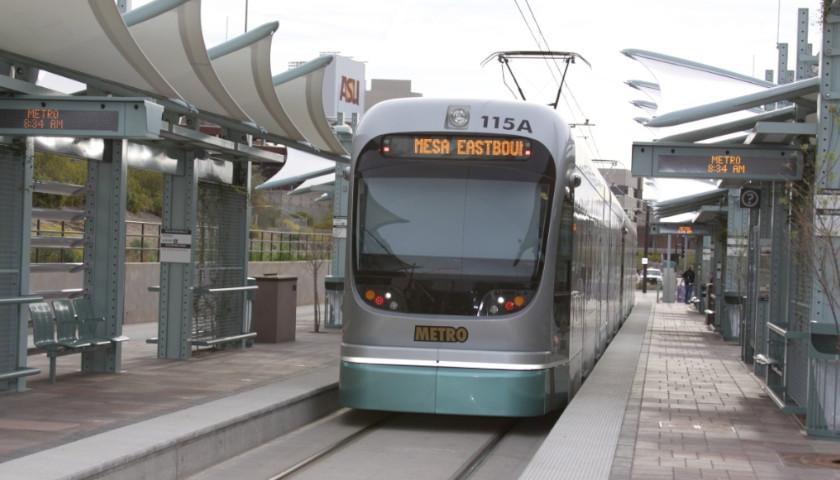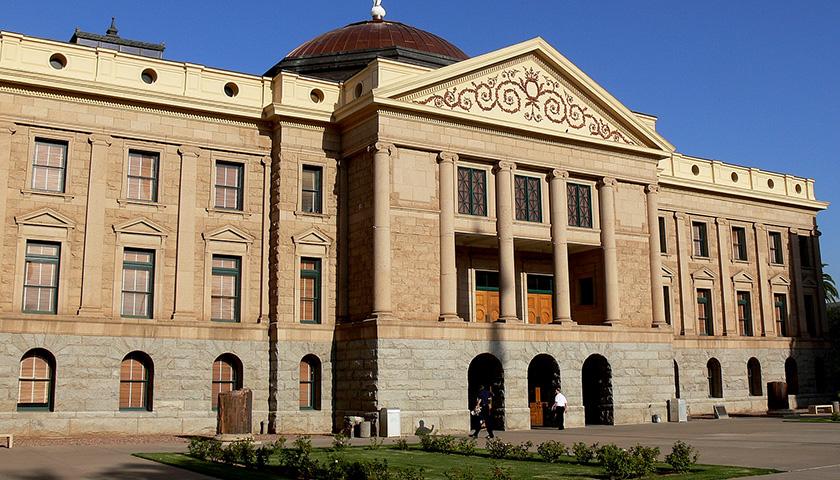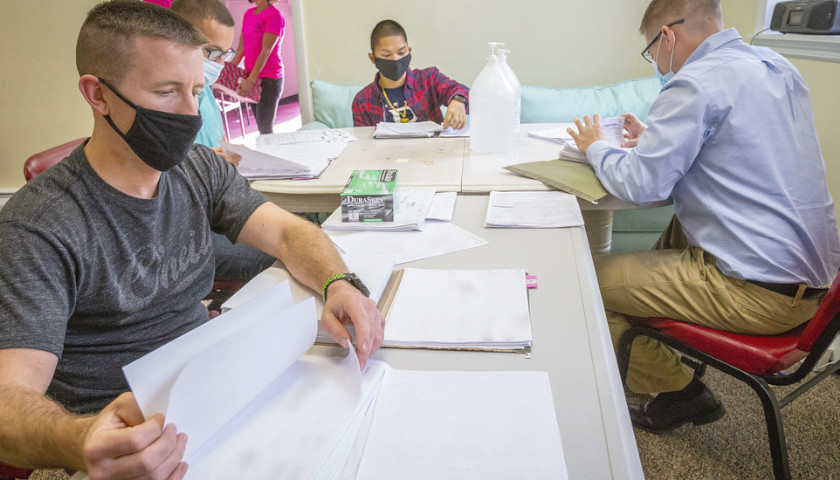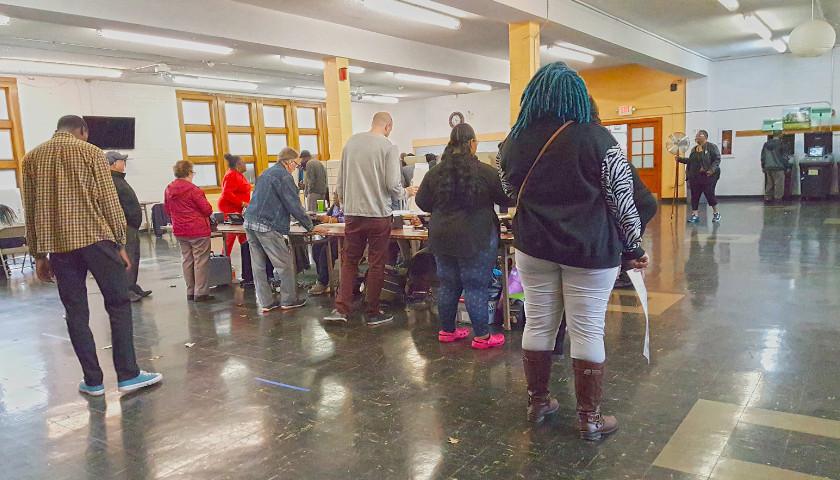The Arizona Legislature resumed session this week to redraft a bill to extend Prop. 400 sales tax for public transportation. Democratic Governor Katie Hobbs vetoed an earlier version of SB 1102 that conservative legislators supported. The new version satisfied some of the conservatives in the legislature but not all of them and was sent to Hobbs.
The Arizona Freedom Caucus (AFC) issued a lengthy statement denouncing the bill and the Republicans who supported it. AFC said the earlier version would have sent the tax increase to the voters as a referendum broke down into two questions: whether to extend the tax to pay for roads and whether to extend the tax to pay for public transportation. SB 1102 combines both into one question for voters.
“Hobbs’ rushed SB1102 version of Prop 400 will steal $8-10 BILLION from most Valley residents to pay for the failed light rail and mass transit system that they will never use,” AFC said. “The Arizona Freedom Caucus supported the responsible Prop 400 plan that was passed by the legislature in June because it properly invested in roads, cut taxes by $241M, and rightfully split the ballot question into two so that voters would have a real choice whether they wanted to invest their hard earned dollars into the totally failed mass transit system, or instead focus only on funding better freeways and roadways. By splitting the question into two, voters had the choice to cut their own taxes by an additional $3.37 BILLION.”
State Senator Wendy Rogers (R-Flagstaff) tweeted a photo of the vote breakdown, stating, “I voted against this because it’s still a $20 billion dollar tax. And this bill is still full of holes.”
I voted against this because it’s still a $20 billion dollar tax. And this bill is still full of holes. pic.twitter.com/IZFCiqEM78
— Wendy Rogers (@WendyRogersAZ) July 31, 2023
State Representative Austin Smith (R-Surprise) tweeted, “I voted NO on the prop 400 transportation excise tax for Maricopa County. Taxpayer dollars are not ours to dish out haphazardly – especially to the tune of 20 BILLION dollars with potential consequences that ruin valley transportation.”
Merissa Hamilton, a grassroots leader who heads up EZAZ and a ballot chasing effort for Kari Lake, called the bill an “Orwellian transportation program.” She pointed out, “Prop400 doesn’t ban ‘intelligent transportation systems.’ This is a major oversight that needs to be addressed in future legislation.” She included a graphic that pointed out the Maricopa Association of Governments (MAG) use of “safety” language to justify the tax extension. “Every MAG Transportation Tyranny program is justified under ‘safety,’” it stated.
Prop400e doesn't ban "intelligent transportation systems"
This is a major oversight that needs to be addressed in future legislation pic.twitter.com/OAf4l0uMcq
— Merissa Hamilton 🗳 ⛽ 🗽🔥 (@merissahamilton) August 1, 2023
Hamilton explained that intelligent transportation systems include “light red light camera, traffic filters, and artificial intelligence surveillance systems.” She said traffic filters are “where a city makes neighborhood zone boundaries and then adds license plate surveillance systems to fine you $90 if you leave your neighborhood in your personal vehicle” without getting a permit approved in time or if the permits run out. They have been implemented in the UK.
Hamilton said, “Phoenix Vice Mayor @yassaminansari tweeted she wants to bring these Orwellian neighborhoods to Phoenix. And now we know MAG wants to use County money to fund them.”
She included Phoenix Vice Mayor Yassamin Ansari Ansari’s tweet, “Have you heard of a 15-minute city? It’s the idea that everything a person needs should be within a 15-minute walk, cycle, or transit from any point in the city. This type of people-first walkability is possible in Phoenix if we take a few simple steps.”
Ansari, who describes herself as a “Climate Leader” in her X profile, went on in a tweet thread discussing her plan to reduce the use of cars.
Senate Majority Leader Warren Petersen (R-Mesa), who consistently receives one of the top ratings in the Senate by conservative organizations, praised the compromise that was worked out.
“We have eliminated regional funding for the expansion of light rail, commuter rails, trolleys, and streetcars,” he said in a statement. “We have ended a foolish loop to the Capitol, hardly an economic center deserving of additional transit and vehicle congestion. We have increased road funding projects from 54% of the tax to 63%.”
Petersen said the air quality programs were defined and trimmed down, the number of legislators engaged in oversight of MAG was increased, cities were provided with an equal say at MAG instead of two big cities dominating, and the bill “ended road diets through lane restrictions.” A road diet plan passed by the Scottsdale City Council in March angered residents since it converted driving lanes in a busy area to bicycle lanes.
Senate Republicans issued a press release praising the bill. The group said, “So long as the Governor signs SB 1102, voters will have the final say on whether to extend the tax.”
State Senator David Farnsworth (R-Mesa), chairman of the Senate Committee on Transportation & Technology, added, “Cities with bus lines not being routinely used by our citizens will not continue to receive Prop. 400 funds.”
“It’s important to note any Prop. 400 funding used to meet federal air quality requirements can only be spent to pave unpaved roads and purchase street sweepers,” said State Senator Frank Carroll (R-Sun City), vice-chairman of the Senate Committee on Transportation & Technology. “Additionally, cities, towns and the state may not restrict the use or sale of a vehicle based on its energy source. Furthermore, mass transit must recoup at least 10% of costs from farebox revenues, starting in 2027, rising to 20% by 2031.”
State Representative David Cook (R-Globe), who the American Conservative Union ranked the lowest of any Republican in the House in 2021, also praised the bill. “I’m proud to have introduced the amendment to SB 1102 that was passed with overwhelming support from both caucuses,” he said in a statement. The chairman of the House Transportation & Infrastructure Committee emphasized, “Light rail expansion is prohibited, as are California-style bans on internal combustion engine vehicles.”
The Arizona Free Enterprise Club has issued numerous reports criticizing the tax extension, referring to it as a “transit slush fund project.”
– – –
Rachel Alexander is a reporter at The Arizona Sun Times and The Star News Network. Follow Rachel on Twitter. Email tips to [email protected].
Photo “Phoenix Lightrail” by KINKISHARYO. CC BY 2.0.





